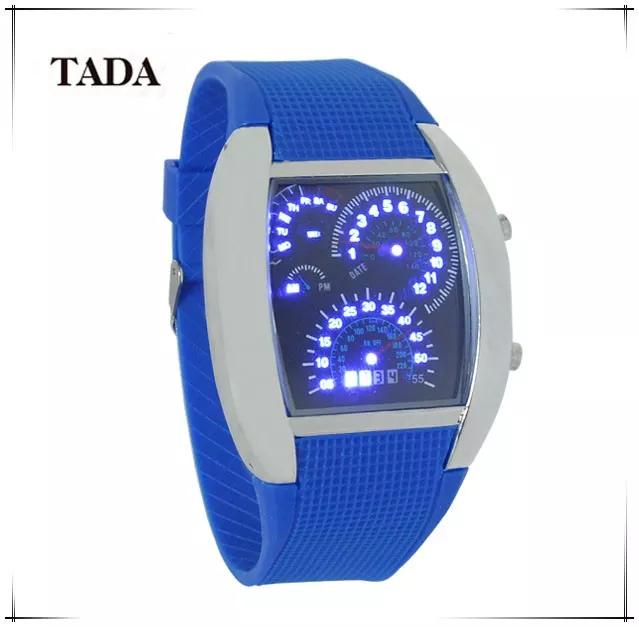Ralph Atkins of Basel, Switzerland With his shaven head, black T-shirt and relentless optimism, Jean-Claude Bive looks as if he owns an American tech start-up on the West Coast. Indeed, Bivet is at the forefront of the Swiss watch industry's reaction to tech-enabled smartwatches, which industry executives believe no longer pose an existential threat of the kind they once feared. LVMH's luxury watchmakers are excited about traditional watchmaking at Baselworld, the 100-year-old exhibition of Swiss watchmakers on the Swiss borders with France and Germany. I think they only sell technology, it's not enough, because people want emotions and they want dreams on the wrist.” The Swiss watch industry is still stuck in a severe downturn. Exports are down nearly 10 percent in the past year, largely due to a faltering global economy, stockpiling in Hong Kong, and a tighter grip on the "gifting" of luxury watches in China. Blame the drop in sales on a structural shift in the market toward smartwatches, the kind that some analysts have predicted. In fact, wearable device makers are now looking anxiously at their connected device sales that haven't taken off as quickly as expected. This year's Baselworld cemented the conviction among Swiss watchmakers that competitors in consumer electronics are not their biggest threat, but perhaps even They help drive demand for precision mechanical watches. When the Apple Watch was first launched, it divided observers into the Swiss industry, which accounts for 95 percent of the retail trade in watches priced over 1,000 Swiss francs. "Three years ago, Apple didn't have to pay for a showroom 'in Baselworld' and they were the talk of the town," says Benjamin Berghaus, a luxury industry specialist at St. Gallen University. American electronics or fitness icons are in a similar dying state for Swiss manufacturers as the arrival of Japanese quartz watches in the 1970s. That didn't happen, but smartwatch sales plummeted in the year Past - Units shipped fell 51.6 percent in the third quarter compared to the same period in 2015, according to market data firm IDC. Wearable tech, such as Fitbit and Jobon, are in trouble. "Smartwatches have been very interesting for people who exercise," says François Thibault, president of Tissot. But wristwatches are emotional products. “The first watch you receive in your life, you will never forget it. You don’t usually keep the first smartwatch you get.” “What makes you put a computer on your body?” Nick Hayek, CEO of Swatch Group, told reporters last week. Swiss watches mean something to generations past, while some new products only have life cycles of six or 12 months, and then the supplier has to write off their investment.” But watchmakers still recognize the need to bring elements from this market into their products. Tag Heuer launched a connected watch ahead of Baselworld. This month, Swatch - which owns brands such as Omega and Tissot, as well as its so-called public market watches - revealed that it is developing an operating system to compete with Apple's iOS and Google's Android. This would enable its own "ecosystem" of miniature products. Rather than being a threat, smartwatches could boost demand for expensive mechanical watches, the industry hopes. “A lot of young people don’t wear a watch – they spend their time on their cell phones or tablets,” says Thibault of Tissot. “Maybe a 'smartwatch' makes them accept the idea of wearing something on their wrist.” from taxes and luxury goods.” Hayek also insists that Swatch's connected devices "must stay a watch. We don't want to be part of the consumer electronics industry." This sentiment resonates with rivals from the electronics sector. Hiroshi Nakamura, executive vice president of Japan's Casio, warns that traditional watchmakers do not have the necessary technological background and says, "For Swiss manufacturers, it's almost impossible to create smartwatches." It has generations. "At the end of the day, it's not a problem at all - they are offended if you compare their products to an Apple Watch," says Rene Weber, analyst at Vontobel. "Personally, I don't need my email inbox on my wrist." Says David Traxler, CEO For the Swiss luxury watch manufacturer Corum, whose clients included US Presidents Richard Nixon and George Bush Sr., "Watches are often the only jewelry men allow themselves to wear." "I would even go so far as to say that 'customers' don't really care if they can't tell the time.'" That doesn't mean a revival is imminent in the Swiss watch industry. Analysts say geopolitical and economic uncertainties - along with changing customer tastes - will certainly dampen sales in 2017. "Now we are worried for other reasons - but not about digital watches," says Berghaus. Share it
Add a comment

